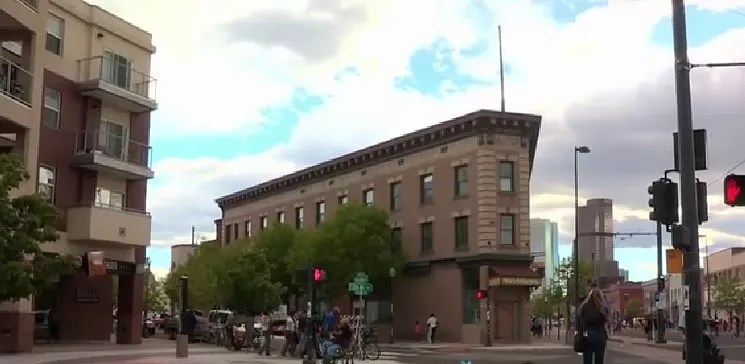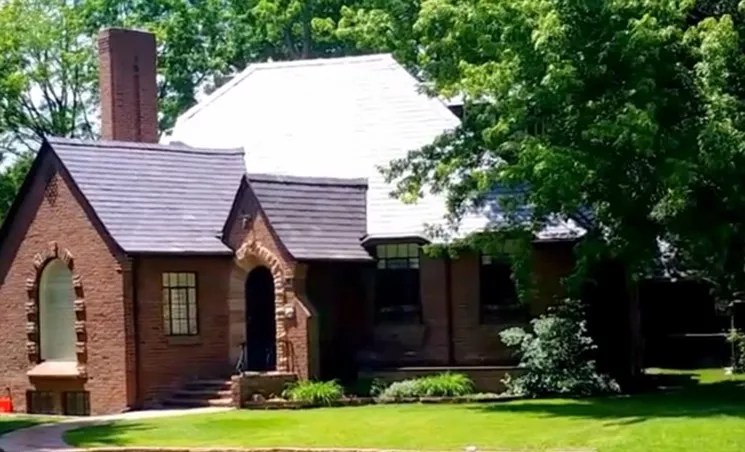
Thinkstock file photo

Audio By Carbonatix
For at least the past couple of years, home buyers in the Denver area have often had to offer more than list price if they really wanted a property. And this scenario isn’t fading from the scene. A recent survey of U.S. cities with the most homes sold over list includes two from Colorado – Denver and Aurora – among the top fifteen.
The list, compiled by the Estately website based on sales data from January, is on view below. But in order to get more details about the potential for bidding wars in Denver and Aurora, we invited the report’s author, Seattle-based Ryan Nickum, to participate in an e-mail interview. He provides additional data and insight about a market that he doesn’t believe will cool down anytime soon.
Westword: More than 20 percent of homes in both Aurora and Denver sold for over list price in January, according to your data. Is that unusual for these cities?
Ryan Nickum: It’s not unusual. Over the past year, depending on the month, 20 percent to 47 percent of Denver houses that sold did sell for over the list price. For Aurora, it was between 27 percent and 58 percent. The summer months are more competitive, so you see more bidding wars then. But when you analyze the monthly data and compare it to the previous year, you see it’s pretty similar.
Does your data show how much above list buyers were offering sellers in Aurora and Denver, on average?
In January, the median sold price for Aurora was 1.8 percent over asking price. For Denver it was 2.17 percent over asking.
Are there commonly multiple bids over the list price in Aurora and Denver under such circumstances? Or do the above-list bids in Aurora and Denver represent attempts by extremely interested buyers to obtain a property before anyone else can get a chance to do so?
I can’t tell this from our data, but I would think it’s more a result of multiple prospective buyers slowly raising the offer price against each other. I doubt one buyer just walks up and throws a bunch of money at the seller immediately.
Is there a typical percentage that a bidding war over a property is driving prices above list in Aurora and Denver?
Our data shows bidding wars drive prices up between 1.8 and 4.0 percent above asking, depending on the month. For Aurora it’s 1.8 and 4.2 percent.
Is the number of above-list bids in Aurora and Denver reflective of an influx of interested buyers, a shortage of inventory, or a combination of both factors?
I think it’s a combination of the two. When you compare Denver and Aurora to the cities atop our list (Oakland, San Francisco, San Jose), you can see they differ when it comes to inventory. Those cities are simply not building much housing, whereas Denver and Aurora are. Right now, here in Seattle, the sound of a condo building being constructed next door is driving me crazy, but it will be of great relief if I were planning to buy a home in the coming years.

The Five Points neighborhood continues to be a hot housing market.
YouTube file photo
Do the number of above-list bids in Aurora and Denver result in higher initial list prices, making the potential profits for sellers even higher?
Home sellers and listing agents are always nervous about what price to list a property for sale in a hot market. If they start too high and it sits there for a while, buyers will start to assume there’s something wrong with it besides just the price. I think most sellers are looking for that sweet spot where it’s low enough to attract an array of interest and multiple offers so that eventually the bidding leads up to the desired price.
Why are there even more above-list bids for properties in Aurora than there are in Denver right now?
They are pretty similar when compared to one another, but my guess is that Denver has been a hot market for a while, and so agents have a better idea of what people will pay there. I also think the diversity of housing in Denver probably makes a difference (more condos, etc.).
Is there the danger of the housing markets in Aurora and Denver overheating to the degree that the market collapses?
I wouldn’t predict that in the foreseeable future. If the economy suddenly took a nosedive, that would have more impact than anything related to home buyers continually trying to outbid each other. But there is always the danger when prices are rising that if they’re not matched by rising incomes, then eventually the market will grow cold. As long as people can afford homes, they’ll keep buying them. That’s why it’s important for all cities to be providing a range of houses to match all budgets.
Does the current scenario seem likely to continue for the foreseeable future?
I believe the current market trends will continue, and if anything will get even more competitive. Both companies and workers are increasingly growing disillusioned with the Bay Area and are looking for other cities. Seattle has seen an influx of these and rapidly rising home prices (and incomes) because of it. Denver is an appealing city for these types of companies and workers, so my prediction is Denver becomes an even more desirable location and sees a greater influx of people. If the city can build housing to accommodate them, then the market will continue on its current trajectory. And if it doesn’t, then it will become a mixed market.
Continue to see the list of the fifteen U.S. cities with the most houses that sold for more than list price in January, including two in Colorado.

A home in the Bonnie Brae neighborhood.
YouTube file photo
Percentage of houses that sold for over list price in January 2017
1. Oakland, California – 62.9 percent
2. San Francisco, California – 58.8 percent
3. San Jose, California – 50.2 percent
4. Seattle, Washington – 41.5 percent
5. Portland, Oregon – 32.1 percent
6. Sacramento, California – 31.9 percent
7. Boston, Massachusetts – 29.9 percent
8. Minneapolis, Minnesota – 29.1 percent
9. Los Angeles, California – 29.0 percent
10. Aurora, Colorado – 27.9 percent
11. Washington, D.C. – 25.6 percent
12. Santa Ana, California – 21.4 percent
13. Anaheim, California – 21.1 percent
14. Denver, Colorado – 21.0 percent
15. Chicago, Illinois – 20.9 percent
Click to see the original post.